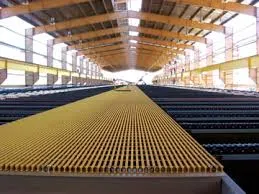
-
 Afrikaans
Afrikaans -
 Albanian
Albanian -
 Amharic
Amharic -
 Arabic
Arabic -
 Armenian
Armenian -
 Azerbaijani
Azerbaijani -
 Basque
Basque -
 Belarusian
Belarusian -
 Bengali
Bengali -
 Bosnian
Bosnian -
 Bulgarian
Bulgarian -
 Catalan
Catalan -
 Cebuano
Cebuano -
 China
China -
 China (Taiwan)
China (Taiwan) -
 Corsican
Corsican -
 Croatian
Croatian -
 Czech
Czech -
 Danish
Danish -
 Dutch
Dutch -
 English
English -
 Esperanto
Esperanto -
 Estonian
Estonian -
 Finnish
Finnish -
 French
French -
 Frisian
Frisian -
 Galician
Galician -
 Georgian
Georgian -
 German
German -
 Greek
Greek -
 Gujarati
Gujarati -
 Haitian Creole
Haitian Creole -
 hausa
hausa -
 hawaiian
hawaiian -
 Hebrew
Hebrew -
 Hindi
Hindi -
 Miao
Miao -
 Hungarian
Hungarian -
 Icelandic
Icelandic -
 igbo
igbo -
 Indonesian
Indonesian -
 irish
irish -
 Italian
Italian -
 Japanese
Japanese -
 Javanese
Javanese -
 Kannada
Kannada -
 kazakh
kazakh -
 Khmer
Khmer -
 Rwandese
Rwandese -
 Korean
Korean -
 Kurdish
Kurdish -
 Kyrgyz
Kyrgyz -
 Lao
Lao -
 Latin
Latin -
 Latvian
Latvian -
 Lithuanian
Lithuanian -
 Luxembourgish
Luxembourgish -
 Macedonian
Macedonian -
 Malgashi
Malgashi -
 Malay
Malay -
 Malayalam
Malayalam -
 Maltese
Maltese -
 Maori
Maori -
 Marathi
Marathi -
 Mongolian
Mongolian -
 Myanmar
Myanmar -
 Nepali
Nepali -
 Norwegian
Norwegian -
 Norwegian
Norwegian -
 Occitan
Occitan -
 Pashto
Pashto -
 Persian
Persian -
 Polish
Polish -
 Portuguese
Portuguese -
 Punjabi
Punjabi -
 Romanian
Romanian -
 Russian
Russian -
 Samoan
Samoan -
 Scottish Gaelic
Scottish Gaelic -
 Serbian
Serbian -
 Sesotho
Sesotho -
 Shona
Shona -
 Sindhi
Sindhi -
 Sinhala
Sinhala -
 Slovak
Slovak -
 Slovenian
Slovenian -
 Somali
Somali -
 Spanish
Spanish -
 Sundanese
Sundanese -
 Swahili
Swahili -
 Swedish
Swedish -
 Tagalog
Tagalog -
 Tajik
Tajik -
 Tamil
Tamil -
 Tatar
Tatar -
 Telugu
Telugu -
 Thai
Thai -
 Turkish
Turkish -
 Turkmen
Turkmen -
 Ukrainian
Ukrainian -
 Urdu
Urdu -
 Uighur
Uighur -
 Uzbek
Uzbek -
 Vietnamese
Vietnamese -
 Welsh
Welsh -
 Bantu
Bantu -
 Yiddish
Yiddish -
 Yoruba
Yoruba -
 Zulu
Zulu
reinforced plastic pipe
The Benefits and Applications of Reinforced Plastic Pipes
Reinforced plastic pipes are emerging as a revolutionary material in various industries, thanks to their unparalleled combination of strength, durability, and lightweight properties. These pipes are constructed using composite materials, typically combining a polymer matrix with reinforcing fibers such as glass, carbon, or aramid. This results in a product that not only meets but often exceeds the performance of traditional piping materials like steel and PVC.
Advantages of Reinforced Plastic Pipes
1. High Strength-to-Weight Ratio One of the most significant advantages of reinforced plastic pipes is their high strength-to-weight ratio. They are considerably lighter than metal pipes, making them easier to handle and install. This characteristic reduces transportation costs and labor during installation, which can significantly lower project budgets.
2. Corrosion Resistance Unlike metal pipes, which can rust and corrode over time when exposed to moisture and various chemicals, reinforced plastic pipes are inherently resistant to corrosion. This makes them ideal for use in harsh environments, such as chemical plants, wastewater treatment facilities, and coastal applications where saltwater exposure occurs.
3. Temperature Tolerance Reinforced plastic pipes can maintain their structural integrity over a wide range of temperatures. This property allows them to be used in both cold and hot environments without the risk of thermal expansion or contraction that can lead to pipe failure in traditional materials.
4. Low Maintenance Due to their resistant properties, reinforced plastic pipes require minimal maintenance. This feature is particularly advantageous for infrastructure projects, as it can lead to significant cost savings over the lifecycle of the project.
5. Sustainability Many manufacturers are now producing reinforced plastic pipes using recycled materials or sustainable practices. This makes them an environmentally friendly choice compared to traditional materials, as they contribute to reducing plastic waste and offer recyclability at the end of their life cycle.
reinforced plastic pipe

Applications of Reinforced Plastic Pipes
The versatility of reinforced plastic pipes allows them to be utilized in a wide range of applications across various sectors.
1. Water Supply and Distribution Reinforced plastic pipes are increasingly being adopted for potable water supply systems. Their resistance to corrosion and biofouling makes them a safe and sustainable choice for ensuring clean water delivery.
2. Industrial Applications These pipes are highly desirable in the industrial sector for transporting chemicals and other corrosive substances. Their durability and resistance to different chemicals ensure that they maintain their integrity, thus preventing leaks that could lead to environmental hazards.
3. Oil and Gas Industry The oil and gas sector benefits from reinforced plastic pipes due to their ability to withstand high pressures and resist corrosion from various hydrocarbons. This application includes offshore drilling and subsea pipelines, where the combination of strength and lightweight is crucial.
4. Irrigation Systems Agriculture can also see the benefits of reinforced plastic pipes in irrigation systems. Their resilience to environmental challenges helps ensure reliable water delivery, enhancing crop yields.
Conclusion
Reinforced plastic pipes are quickly gaining prominence as a preferred choice in many industries due to their myriad advantages. As technology continues to advance, it is likely that these pipes will become even more prevalent, offering innovative solutions to complex challenges in water management, industrial processes, and environmental protection. Embracing the benefits of reinforced plastic piping can not only lead to cost savings but also promote a more sustainable future for infrastructure development.









